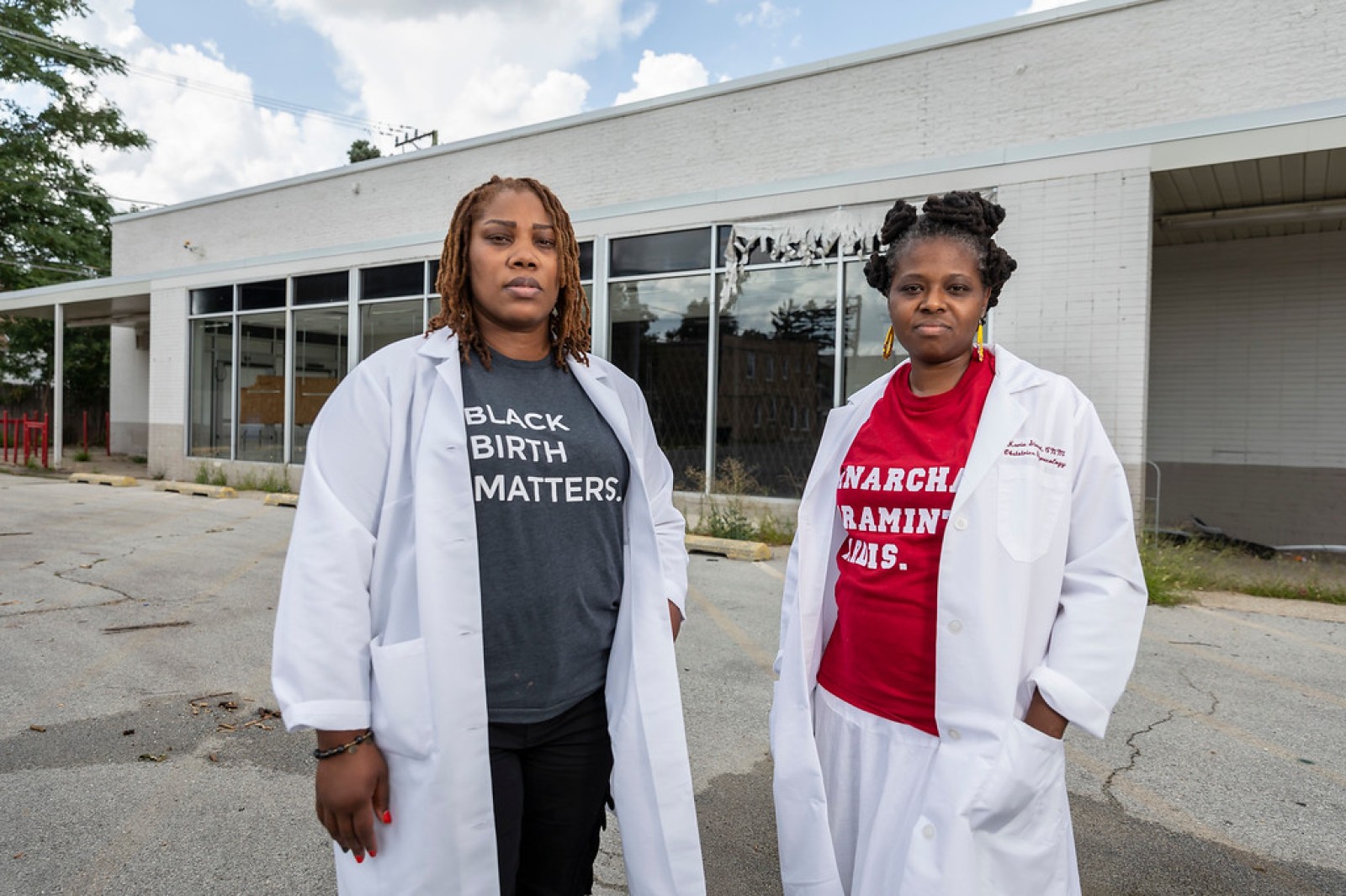Every pregnant person deserves the opportunity to deliver their babies in a safe, affordable, and comfortable setting of their choice. However, the current landscape of birthing options on the south and west sides of Chicago, and in rural parts of the state, limits their choices. The lack of access to birthing centers, midwifery, and doula care has deadly effects. In Illinois, non-Hispanic Black women are six times as likely to die of a pregnancy-related condition as non-Hispanic White women. Compounded with the disproportionate impact of COVID-19 on Black communities, Latinx communities, and rural areas with fewer health care providers, the lack of birthing centers in Illinois is an issue of both racial and reproductive injustice and exacerbates ongoing disparities in health outcomes.
Access to respectful, culturally competent care is a challenge in our state, even for people with insurance. The health care system in Illinois could improve its care coordination between providers, as well as offer alternatives to hospitals such as doula or midwifery services through birthing centers . Accredited free-standing birthing centers are a safe, lower cost alternative to hospitals. The Alternative Health Care Delivery Act (Public Act 095-0445) authorized up to 10 free-standing birth centers in Illinois in 2007. Yet, Illinois still has only 2 free-standing birthing centers in the entire state, and only one accepts Medicaid, further limiting options for many families.
The absence of birthing centers across Illinois is exacerbated by the lack of labor and delivery units in some hospitals, as well as the lack of hospitals in general in many communities. Neighborhoods and communities may lack labor and delivery units or entire hospitals due to temporary closures related to COVID-19 precautions or permanent closures because of general financial strains. Fewer hospitals means less options for giving birth. The lack of options for giving birth creates a scenario for pregnant patients where they must travel farther for care and in some cases, risk delivering with a provider who is unfamiliar with their medical history.
 |
Increasing the number of locations where parents can deliver their babies would support continuity of care, increase access to prenatal and postpartum care, and could potentially decrease pregnancy-related complications. While providing care without access to a patient’s full health history increases the risk of complications, preventative care, such as attending prenatal visits, decreases the chances of complications. Patients are more likely to attend prenatal and postpartum follow-up visits if they live close to their health care provider. Illinois must invest in and incentivize health systems to build more birthing centers, increase the pregnancy support workforce, and immediately implement policies that decrease the chances of pregnancy-related complications. In addition, decreasing pregnancy-related complications saves money. In Illinois, the average cost for a delivery with severe maternal morbidity is four times more than a delivery without complications. Birthing centers could be a solution to support the gaps in care created by the lack of hospitals, as well as an alternative cost-saving method.
EverThrive IL is dedicated to creating a world where all people can live their healthiest life. We believe that people deserve the social, political, and economic power, rights, access, and resources to receive quality prenatal, pregnancy, postpartum, and interconception care. In addition, we believe that community members know what is best for their communities and should be the leading voices for change. Therefore, we strongly support the actions of community members working to increase the number of options for birthing parents in Illinois. Chicago has the opportunity to create this much-needed reform, because two midwives are working to bring a free-standing birthing center to the Southside. EverThrive IL recognizes the need for an additional free-standing birth center in the Chicago area, as well as in rural areas of the state, and urges Managed Care Organizations, hospital systems, and key stakeholders to evaluate all feasible options to make more birthing centers a reality. For more information about how EverThrive IL is currently working to increase maternal and child health, click here.
authored by:
Sarah Ferguson
Policy Intern
University of Illinois at Chicago – MSW ’21
